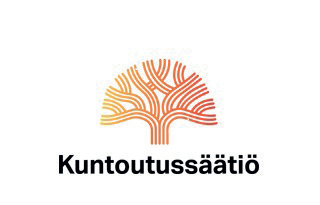Työnhakumotivaation dynamiikkaa
Näkökohtia motivaatiokysymysten käsittelystä sosiaalisessa kuntoutuksessa
Abstract
Artikkelissa tarkastellaan työttömän työnhakumotivaatiota ja siihen liittyviä psykososiaalisia tekijöitä kolmen käyttäytymistieteellisen teorian sekä sosiaalitoimen työvalmennusyksikössä tehdyn tutkimuksen valossa. Itsemääräämisteoria, opitun avuttomuuden teoria ja odotusarvoteoria tuovat eri painotuksin esille työttömän työarvojen, onnistumisodotusten, pystyvyyden ja hallinnan merkitystä työnhakumotivaatiolle. Työvalmennusyksikössä tehdyssä tutkimuksessa selvitettiin haastatteluin kuuden työvalmentajan käsityksiä työttömien työnhakumotivaatiosta sekä havainnoitiin kolmea työvalmennustilannetta. Aineistosta hahmottui neljä työhakumotivaatioorientaatiota, jotka nimettiin joustavaksi, riippumattomaksi, lukkiutuneeksi ja hajanaiseksi orientaatioksi. Orientaatioita jäsentävät palkkatyöhön liittyvien motiivien henkilökohtainen merkitys ja työttömän elämänhallinnan luonne. Motivoinnista ja muista interventioista sosiaalisessa kuntoutuksessa hyötyisivät parhaiten työttömät, joilla on lukkiutuneeseen tai hajanaiseen työnhakumotivaation orientaatioon viittaavia työnhaun ja työllistymisen esteitä.
Abstract
This article examines the job search motivation of unemployed people and related psychosocial factors in the light of three theories within the behavioural sciences and a study carried out at the job-coaching unit of a community social services department. The significance of the unemployed person’s work values, expectations of success, competence, and mastery for his or her job search motivation is highlighted, with different emphases, by the Self-determination Theory, the Theory of Learned Helplessness, and the Expectancy-value Theory. In the study at the job-coaching unit, the impressions of six job coaches about the job search motivation of unemployed people were elucidated by means of interviews, and three job-coaching encounters were observed. The data brought out four identifiable motivational states, or orientations, towards job searching. They were labelled as flexible, independent, blocked, and fragmented motivational orientation. Orientations are structured by the personal meaning assigned to work-related motives and by the nature of the unemployed person’s control over life. Motivation building and other social rehabilitation interventions would benefit those unemployed people who have barriers to job searching and employment suggesting a blocked or fragmented motivational orientation.







